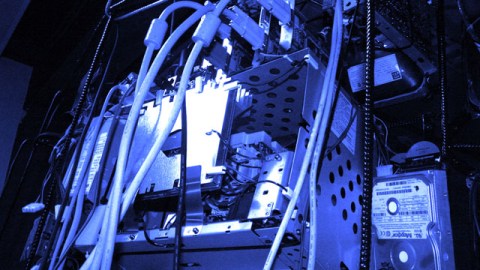Web 4.0: When Machines Take Over

Part five of Big Think’s Farsight 2011 event looked at how artificial intelligence and machine learning would affect the future of digital search — and how we understand and predict the future.
Luc Barthelet, the executive director of Wolfram/Alpha spoke about the technique behind his search engine, describing how the it accumulate and curate data is by using professional experts. He said that “the goal is to democratize knowledge and make that available for everyone. … We want to accelerate the knowledge economy by providing the algorithm. … We want to turn your question into something we can solve.”
Barthlet said that at some point in the future people will be able to have back-and-forth conversations with their computers, and that we will enhance our knowledge by interacting with the machine to find out how the computer made its decision. Eventually, he said, people should be able to say “you are so wrong” to their computer. Having synthesized enough information through machine knowledge, a human could then connect the dots.
Next, Recorded Future founder Chris Ahlberg, talked about how his company is trying to synthesize existing information online to predict events in the future. “We’re surrounded by micro-notions of the future, and what if we tried to organize them?” he asked rhetorically. He said the company figured if it could organize the events into timepoints, we could unleash what mankind knows about the future.”
He described how the classic Web is organized on publishing time, and how he was hoping to translate information into human time, and yielding actionable results that could be used by traders. “The future is available now, and this can generate real profits in trading by humans or machines,” he said.





